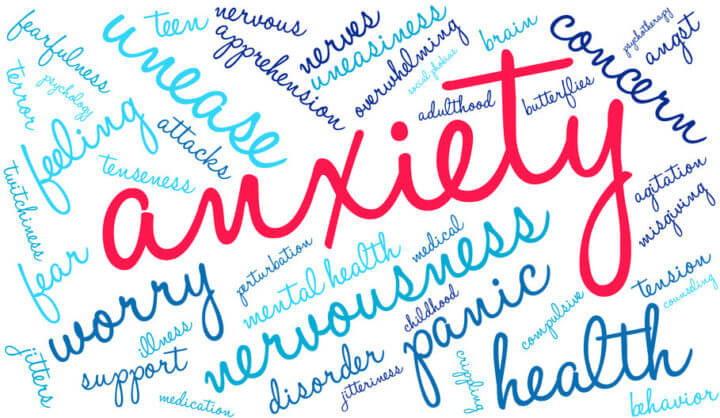Syndrome: “A collection of symptoms and findings that are not attributed to a single identifiable disease”
Adrenal fatigue is not well understood. As with other common syndromes (such as Irritable Bowel Syndrome,) this is partly because the signs and symptoms are many and varied, and can differ from person to person.
A few common examples are headaches, lethargy, insomnia, poor digestion, and aching joints.
All of the above are common in people with adrenal exhaustion; unfortunately they’re also the symptoms of any number of other, unrelated conditions.
You are unique
Diagnosing adrenal fatigue is complicated. Many sufferers spend years trying to get to the root cause of their problem as symptoms are vague, and the most commonly ordered tests are far from reliable. It’s little wonder that the medical profession is often baffled at how to treat the condition, when every person with adrenal fatigue has a unique set of symptoms that is particular to them.
That said, there are a number of symptoms that the majority of people with adrenal fatigue all have in common; extreme tiredness upon waking, a craving for salty foods, energy spikes in the evenings and high levels of fatigue during the day… but there are also many lesser known signs that may indicate that adrenal fatigue is an issue for you.
Have you experienced any of the following?
The lesser known symptoms of adrenal fatigue
Weight gain
If you’ve recently gained weight and can’t fathom out why you’re putting on those extra pounds, it may be because your adrenal health is below par.
In times of stress, your adrenals manufacture a number of hormones to prepare your body for “fight or flight.” One of these hormones is cortisol. During the early stages of adrenal fatigue, your levels of this hormone are likely to be elevated.
Cortisol has a powerful impact on the functioning of your digestive system. Not only does it impair your body’s ability to properly digest food, it sends signals to your brain to increase your appetite. That’s why stressed out folk naturally reach out for sugary, high calorie comfort foods to make them feel better.
There’s another reason why people with adrenal fatigue put on weight. It’s all down to a lack of sleep.
When you’re running low on energy, it’s easy to think that a chocolate bar or a cafe latte will give you that boost of energy you need to get you through the day. When this becomes a regular pattern, it’s easy to pile on the pounds.
Nightly hormones also play a vital role in maintaining your optimum body weight. If you’re sleep deprived, your body produces more ghrelin – this is the hormone that tells you to eat. Ghrelin production is your body’s way of telling you to find energy in the form of calories to keep you moving. By getting to grips with your sleep hygiene and finding ways to regulate your cortisol levels, you may find that your weight issues are easier to manage.
Anxiety
There’s another lesser known symptom of adrenal fatigue that many people don’t realise is also caused by irregular cortisol production.
Although it may be years before the sufferer makes the link, low mood and anxiety are very common in people with adrenal fatigue. When your adrenals pump out cortisol, what you’re actually experiencing is a natural high. This keeps you functioning for a while, but it’s usually only a matter of time before you eventually crash and burn. When this happens, it’s common to experience feelings of anxiety, and even depression.
To add to the problem, people with adrenal fatigue don’t experience a normal cortisol awakening response. Low cortisol levels in the morning can mean a grumpy, depressing start to the day. This feeling is often followed by further anxiety about having enough energy to get through until supper. Thus perpetuates the vicious cycle.
Heightened sense of smell
Okay so this isn’t really a symptom as such, but if you’ve recently discovered that you can’t bear the smell of your partner’s aftershave, or are intolerant to common smells such as food cooking, then this may be an indication that your adrenal glands are overworked.
Surprisingly, many people with adrenal fatigue often report that they’ve developed a heightened sense of smell. It’s not fully understood why this happens, but it may be linked to the fact that when you have adrenal fatigue, you are, in a sense, in a permanent state of alert. In pre-modern times, a good sense of smell was necessary for survival, so prolonged stress may cause an increased sensitivity to odor.
Conversely, people in the later stages of adrenal exhaustion, where the energy is depleted, often enjoy stimulants such as loud music or excessive exercise, possibly as an attempt to stimulate the adrenals into action.
Takeaway
Every person with adrenal fatigue has a unique set of symptoms that’s particular to them. When we understand this, it’s clear that to get to the root cause of the issue, a “one size fits all” program won’t do. A good practitioner can help you create a plan that’s tailor made to suit you routine, current health status and individual symptoms. But whatever health issues you’re having right now, the good news is that you can begin taking charge of your health today.
For more in depth information about the lesser known symptoms of adrenal fatigue, with lots of lifestyle tips and nutritional advice check out The Adrenal Fatigue Solution.




How does this effect potassium levels?
Dear Diane,
Have you heard of Prednisone causing Adrenal Fatigue with in turns makes all food taste bad…metallic sawdust?
Thank you!
James